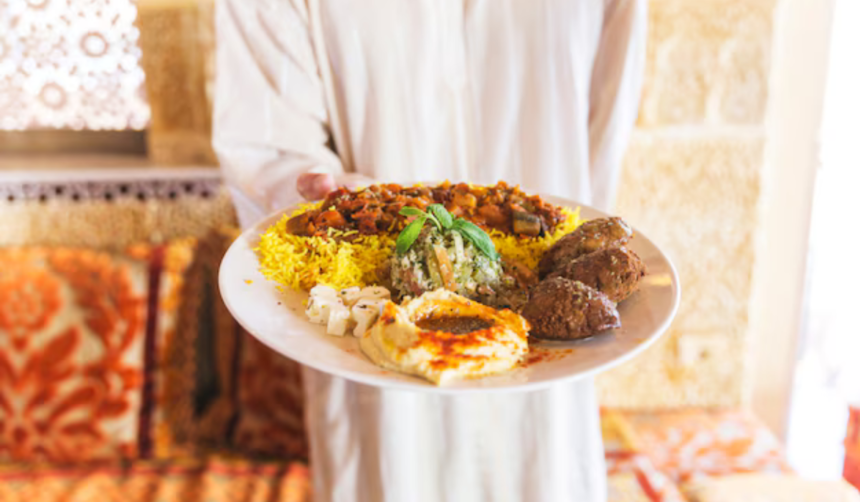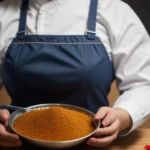Cooking with Tradition: The Art of Arab Cuisine
Introduction
Arab cuisine is a vibrant and diverse culinary tradition that has been shaped by centuries of history, trade, and cultural exchange. From fragrant spices to rich stews, Arab cuisine is known for its bold flavors and unique ingredients. In this article, we will explore the art of Arab cuisine and how it has been passed down through generations, preserving the traditions and techniques that make it so special.
The History of Arab Cuisine
Arab cuisine has a rich and storied history that dates back thousands of years. With influences from ancient civilizations such as the Phoenicians, Egyptians, and Persians, Arab cuisine has evolved over time to become a unique and diverse culinary tradition. The Arab world is made up of 22 countries, each with its own distinct culinary heritage and specialties.
Key Ingredients in Arab Cuisine
Arab cuisine is characterized by the use of bold and aromatic spices, fresh herbs, and high-quality ingredients. Some of the key ingredients used in Arab cuisine include:
– Olive oil
– Lamb and chicken
– Rice and bulgur
– Yogurt and labneh
– A variety of spices, such as cumin, coriander, and cinnamon
Traditional Arab Dishes
Arab cuisine is known for its wide range of savory dishes, from rich and spicy stews to fragrant rice and grilled meats. Some of the most popular dishes in Arab cuisine include:
– Hummus: A creamy dip made from chickpeas, tahini, garlic, and lemon juice
– Falafel: Deep-fried chickpea balls served in pita bread with tahini sauce
– Kebabs: Grilled skewers of meat, usually lamb or chicken, marinated in a blend of spices
– Tabouleh: A refreshing salad made from parsley, tomatoes, onions, and bulgur wheat
Cooking Techniques in Arab Cuisine
Arab cuisine encompasses a wide range of cooking techniques, from slow-cooking stews to quick and easy grilled dishes. Some of the most common cooking techniques in Arab cuisine include:
– Braising: Slow-cooking meats in aromatic spices and liquids to create tender and flavorful dishes
– Grilling: Cooking meats and vegetables over an open flame to impart a smoky flavor
– Steaming: Cooking vegetables and grains in steam to preserve their natural flavors and nutrients
The Role of Family and Tradition in Arab Cuisine
Family and tradition play a central role in Arab cuisine, with many recipes passed down through generations. In Arab culture, cooking is seen as a way to connect with loved ones and preserve cultural heritage. Many families have their own secret recipes and techniques that have been handed down over time, creating a strong sense of culinary tradition.
Regional Variations in Arab Cuisine
Each region in the Arab world has its own unique culinary traditions and specialties. From the spicy dishes of North Africa to the rich stews of the Levant, Arab cuisine is as diverse as the countries that make up the Arab world. Some of the regional variations in Arab cuisine include:
– Moroccan cuisine, known for its use of sweet and savory spices in dishes such as tagines
– Lebanese cuisine, with its emphasis on fresh ingredients and mezze-style dining
– Egyptian cuisine, with its hearty stews and use of ingredients such as fava beans and lentils
The Influence of Arab Cuisine on Global Food Trends
Arab cuisine has had a significant influence on global food trends, with dishes such as hummus and falafel becoming popular around the world. The bold flavors and fresh ingredients of Arab cuisine have inspired chefs and home cooks alike to experiment with new flavors and techniques. In recent years, Arab cuisine has gained popularity in the West, with restaurants and food trucks serving up traditional Arab dishes with a modern twist.
The Health Benefits of Arab Cuisine
Arab cuisine is known for its use of fresh ingredients, whole grains, and lean proteins, making it a healthy and nutritious choice for those looking to eat well. Many traditional Arab dishes are low in fat and packed with vitamins and minerals, making them a great option for those looking to maintain a balanced diet. The use of spices and herbs in Arab cuisine also adds flavor without the need for excess salt or sugar.
The Future of Arab Cuisine
As Arab cuisine continues to gain popularity around the world, chefs and home cooks are finding new ways to innovate and experiment with traditional dishes. The future of Arab cuisine is bright, with a new generation of cooks and food enthusiasts working to preserve and promote the rich culinary heritage of the Arab world. With its bold flavors and diverse ingredients, Arab cuisine is sure to remain a staple on tables around the globe for years to come.
Conclusion
Arab cuisine is a vibrant and diverse culinary tradition that has been shaped by centuries of history and cultural exchange. With its bold flavors, rich spices, and unique ingredients, Arab cuisine offers a taste of the rich culinary heritage of the Arab world. From traditional dishes passed down through generations to modern interpretations that cater to a global audience, Arab cuisine continues to inspire and delight food lovers around the world. Cooking with tradition, the art of Arab cuisine is a celebration of history, culture, and the joy of sharing a delicious meal with loved ones.
















